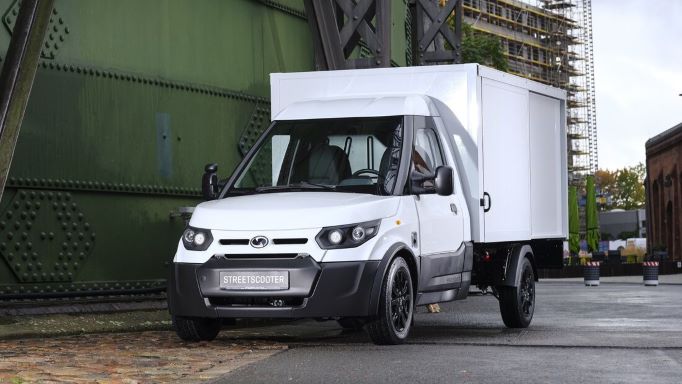The UK government announced at the recent COP26 event that non zero emission light commercial vehicles under 26 tonnes will be phased out by 2035. Other governments are sure to follow suit and the writing is on the wall for the industry: Zero emission light and medium duty commercial vehicles are set for growth in volumes and market penetration.
The powertrain changes have seen a swathe of new players throw their hats into the ring, disrupting what is traditionally a stable sector of the CV industry. While electric vans may still represent a small per cent of the market, legislation, public opinion and a growing number of vehicles that break down the traditional barriers to entry, mean that the market will transform rapidly.
The van market is heavily influenced by the performance of the economy with housing and retail impacting demand. The pandemic led to increased home delivery services with vans often in short supply, no matter what powertrain they had.
According to the World Economic Forum, demand for urban last-mile delivery is expected to grow by 78 per cent from 2020 to 2030. The result will be 36 per cent more delivery vehicles in the one hundred most populated cities, causing emissions to potentially rise by nearly a third. Europe is leading the market in the adoption of commercial electric vehicles to counter this emissions rise. Cities there are restricting the access of diesel vehicles through the implementation of ultra-low emissions zones making electric commercial vehicles an attractive choice for business in the future.
Although traditional van makers are leading the charge, the shifting landscape has opened the door for new players to enter. In 2020, Arrival won a USD 428 million order from United Parcel Service (UPS) for 10,000 vehicles. Arrival is also funded by Hyundai and Kia. Most recently we witnessed the IPO of Rivian, leading to claims it is the third most-valuable car manufacturer in the world, behind only Tesla and Toyota. One crucial element for many of these new entrants is that they have yet to deliver any product.
That is not the case with one of the other newer entrants to the market, StreetScooter. Owned by logistics giant DPDHL, has an existing fleet of over 20,000 electric light commercial vehicles already in operation and has an established production line with capacity to put out 30,000 vehicles per year. giving them a strong first-mover advantage against other companies who will not be able to deliver any product until at least the end of 2022.
With over 100 million kilometres of zero-emissions work completed since 2015, they are a proven option. Reputed to be popular with German postal drivers who have found them to dependable, they form a key part of DHL’s electrification plan that also includes bikes and trikes in the coming years.
What is clear is that DPDHL no longer sees itself as needing to be a vehicle OEM and announced early in 2021 that it would be accepting bids to takeover operations of the project. Whilst some media claim the sale is due to its operating losses, a deeper dive suggests that much of that was to ensure it refined the quality and overall features for its use case and has already placed an order for further vehicles for years to come.
Several buyers are rumoured to have bid for the project – but the winner is reported to be Odin Automotive, a holding company led by EV and automotive veteran Stefan Krause. Krause was the former CFO and Board Member of BMW and original CEO/Founder of American EV company Canoo, which is now publicly trading in the US at a nearly $3B valuation. Krause does bring automotive and electric vehicle expertise that the business will benefit from to ensure it stays ahead as the market continues to transform.







